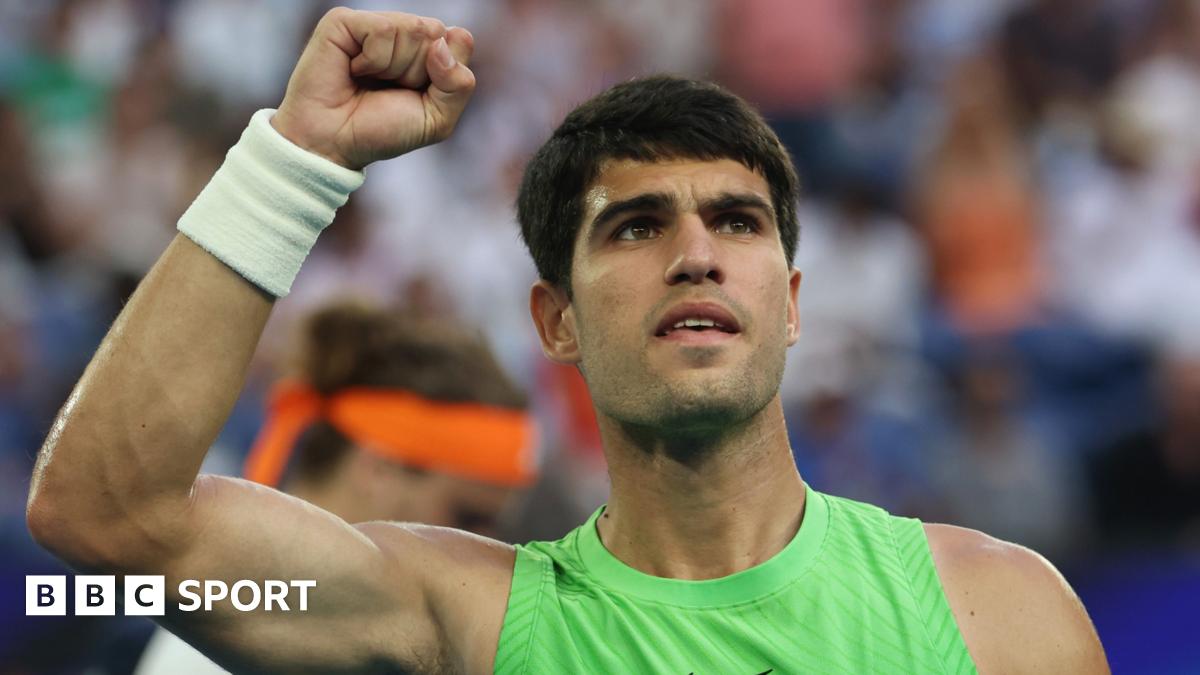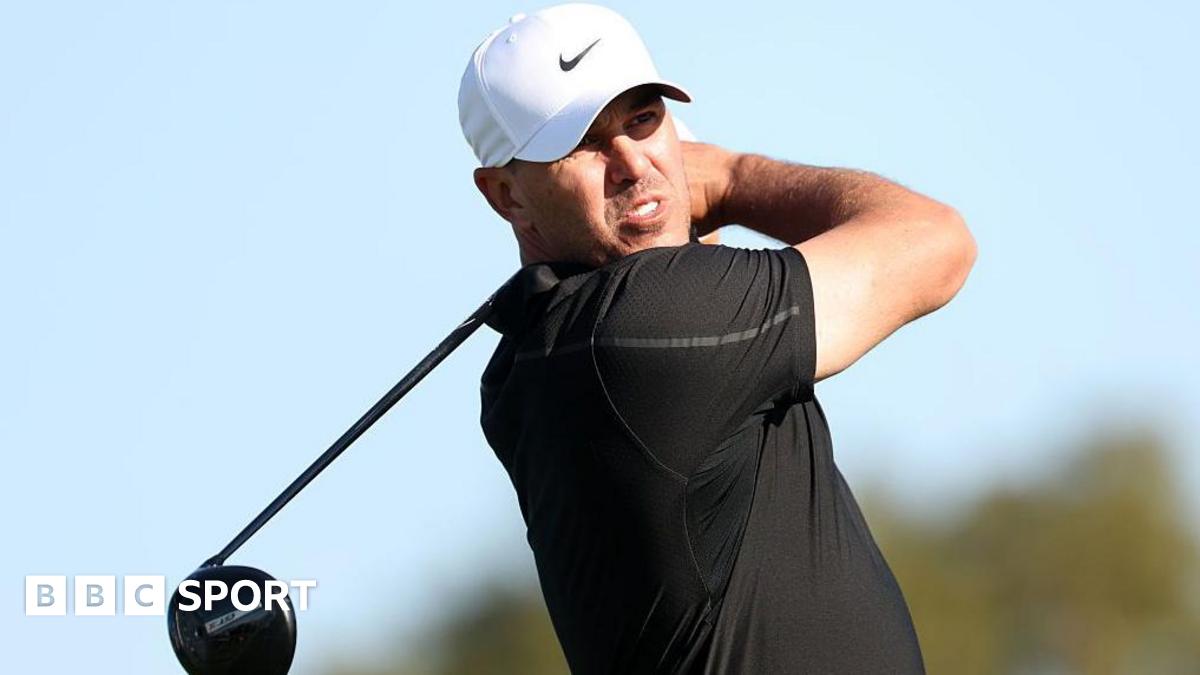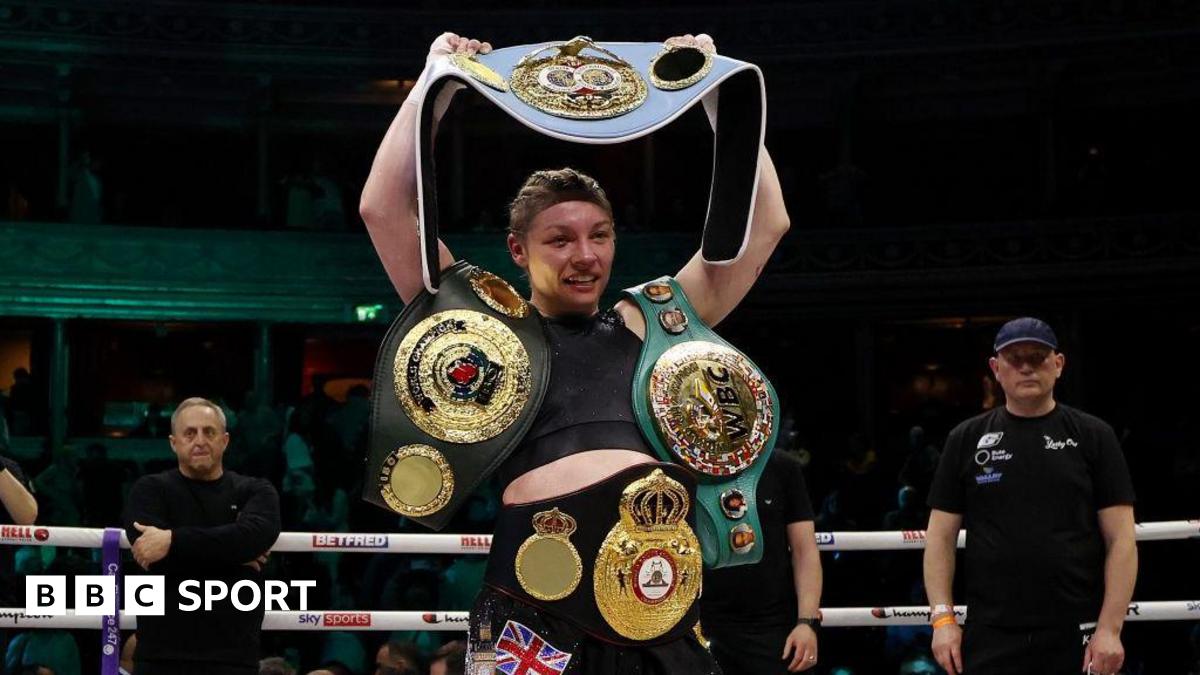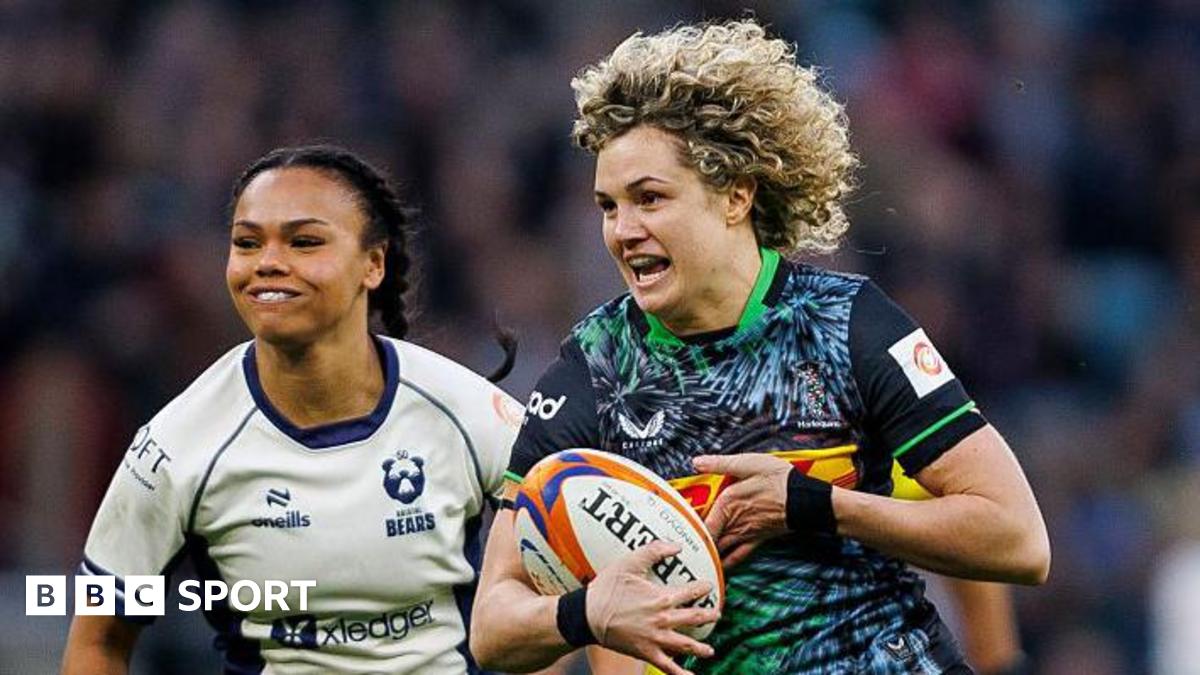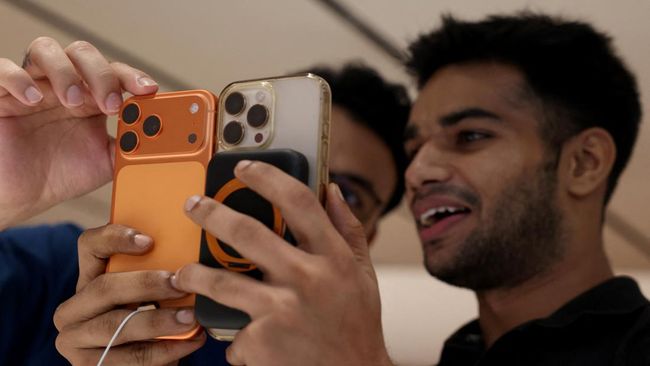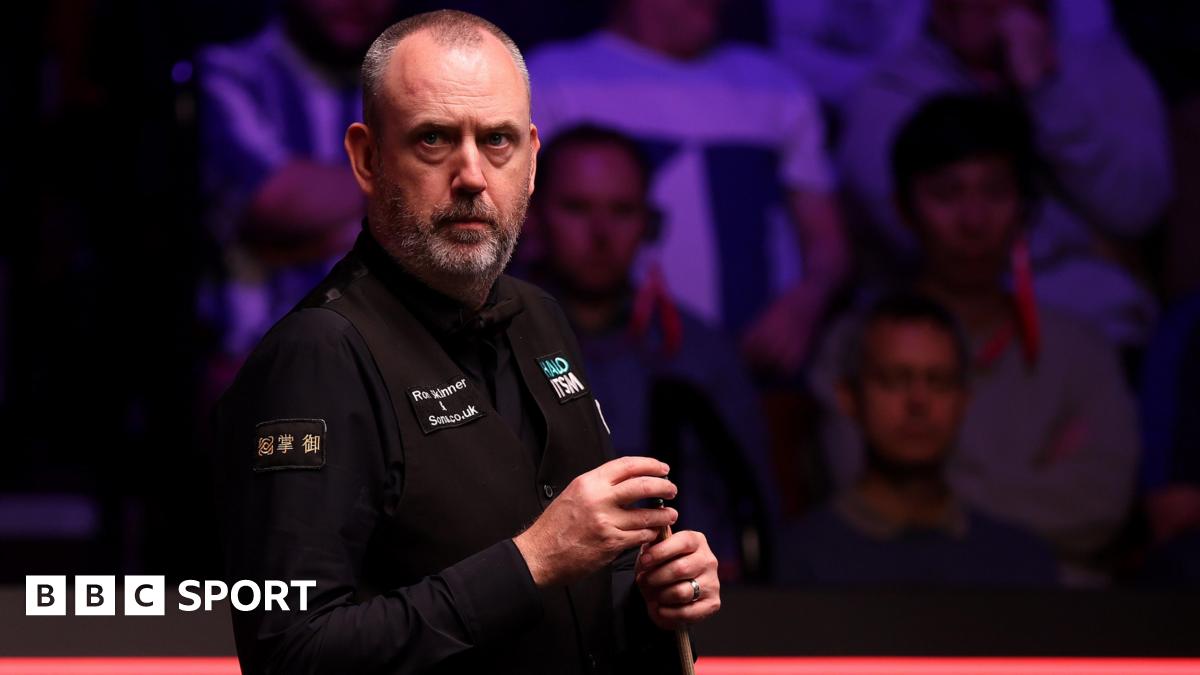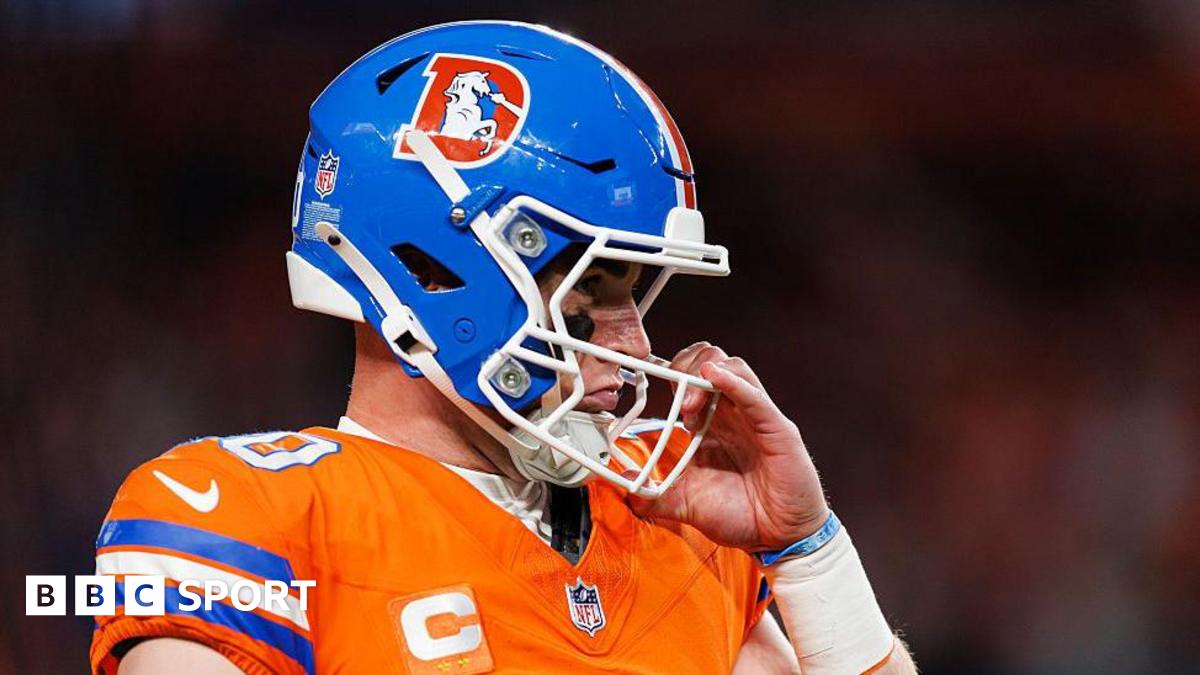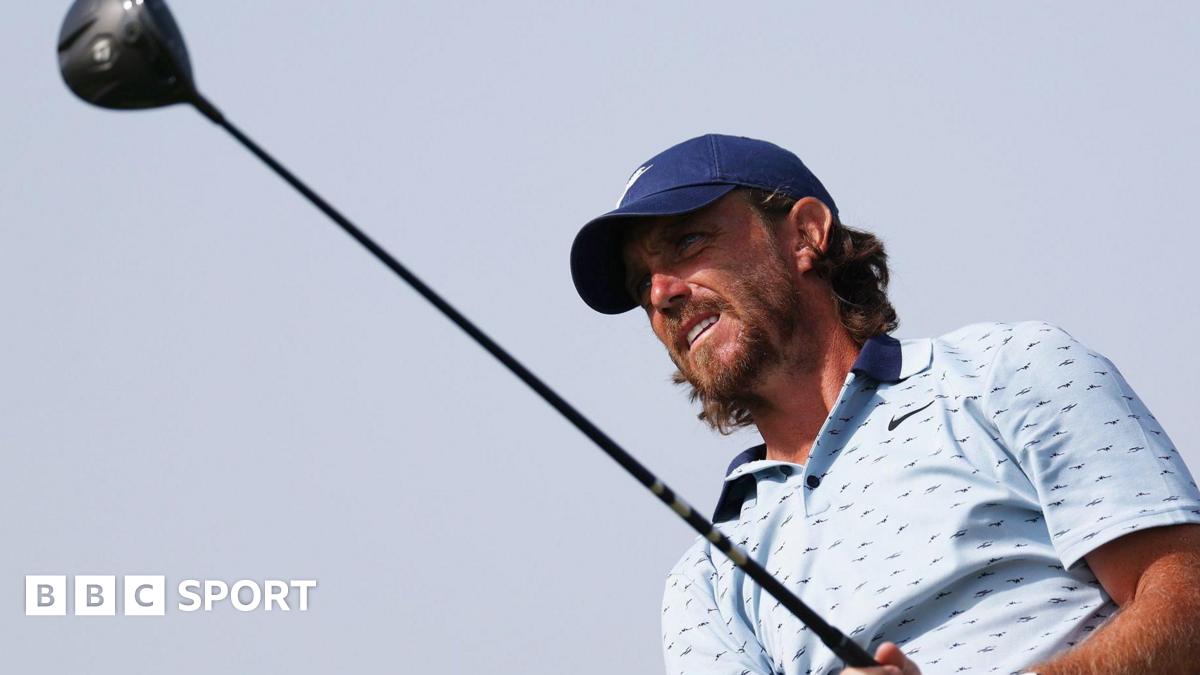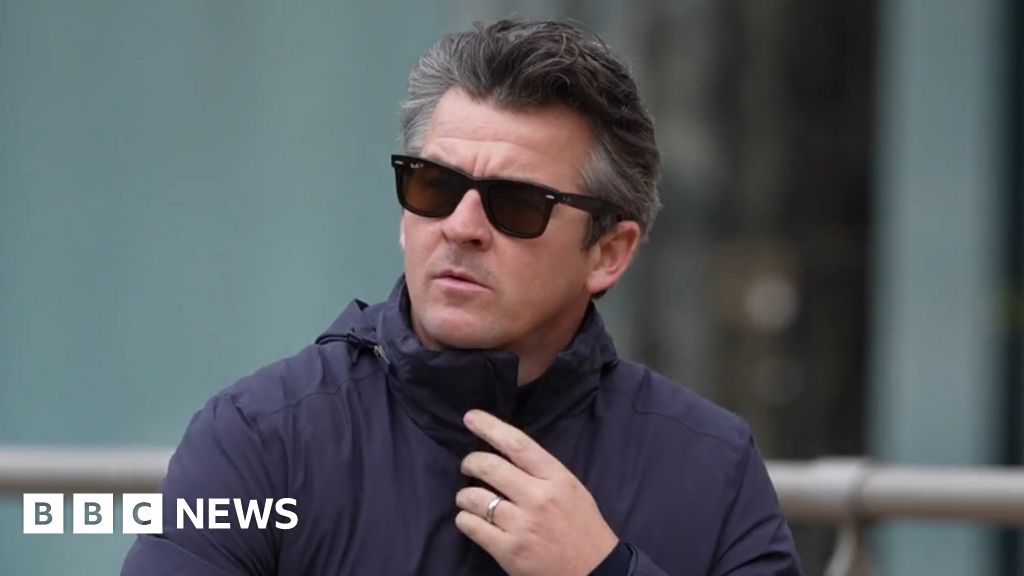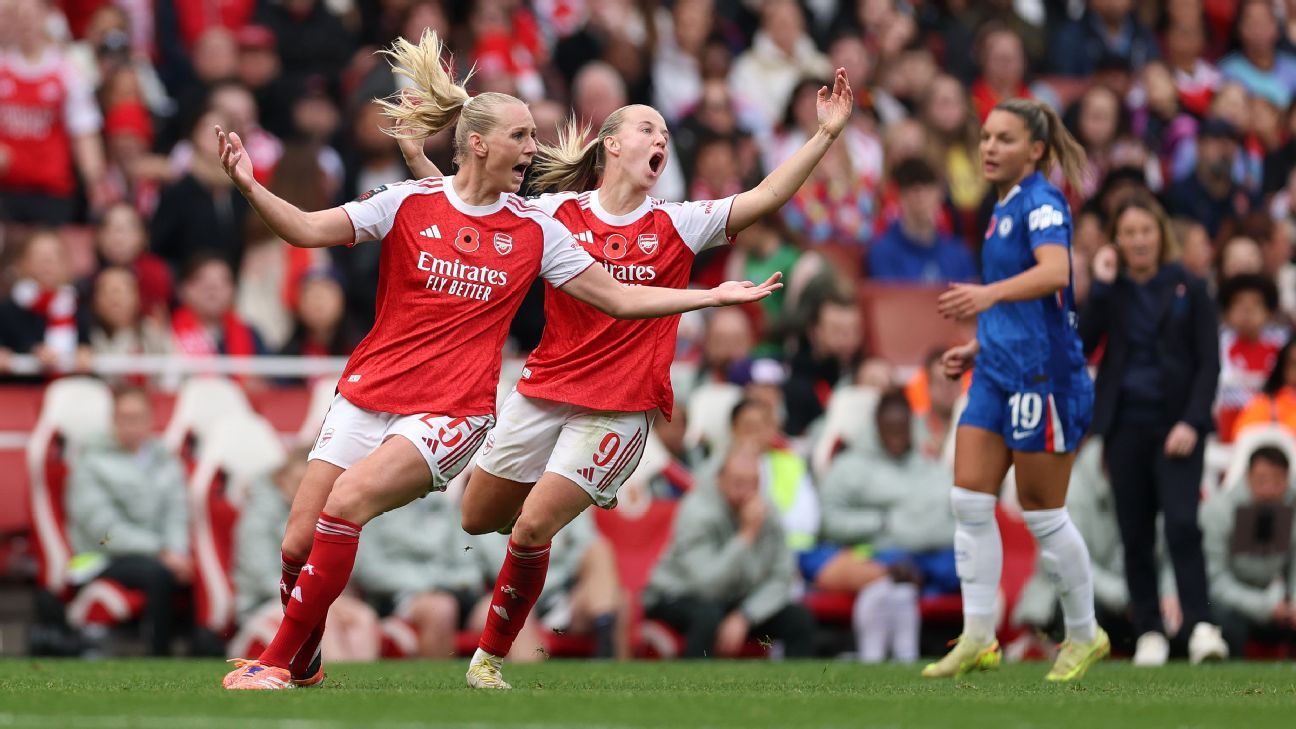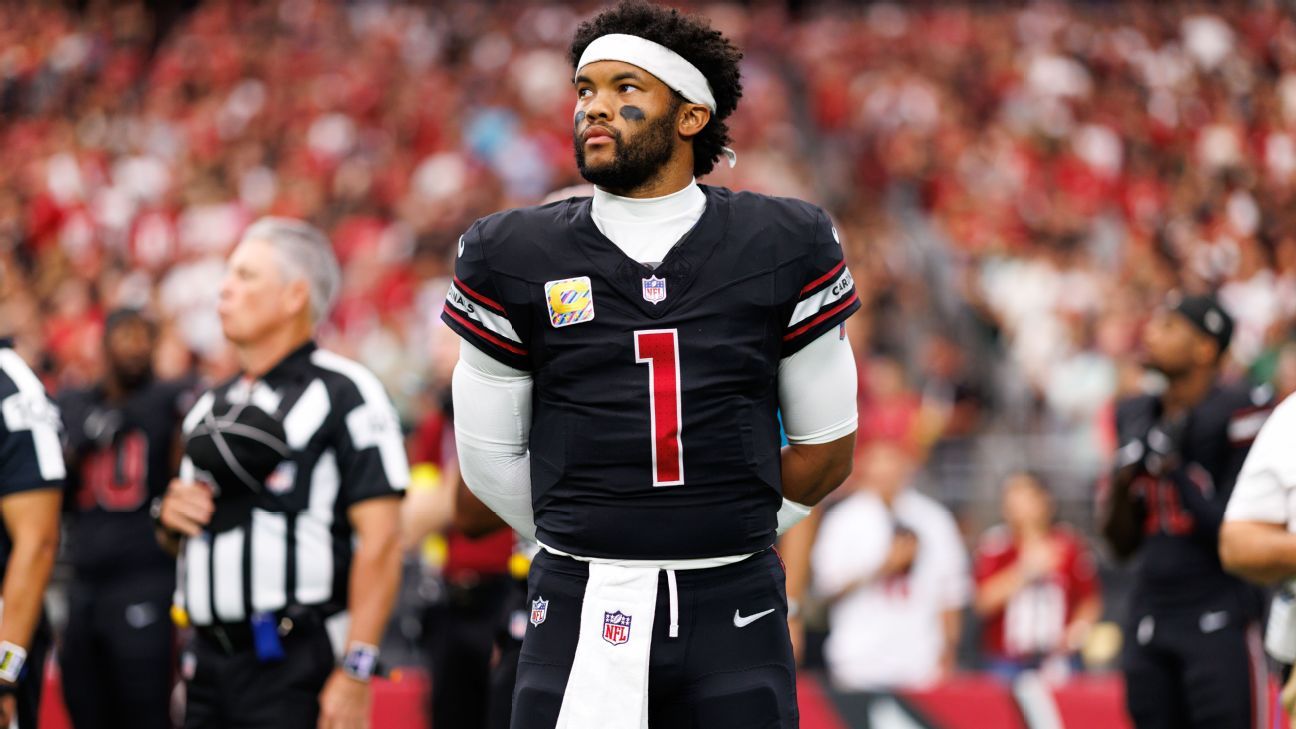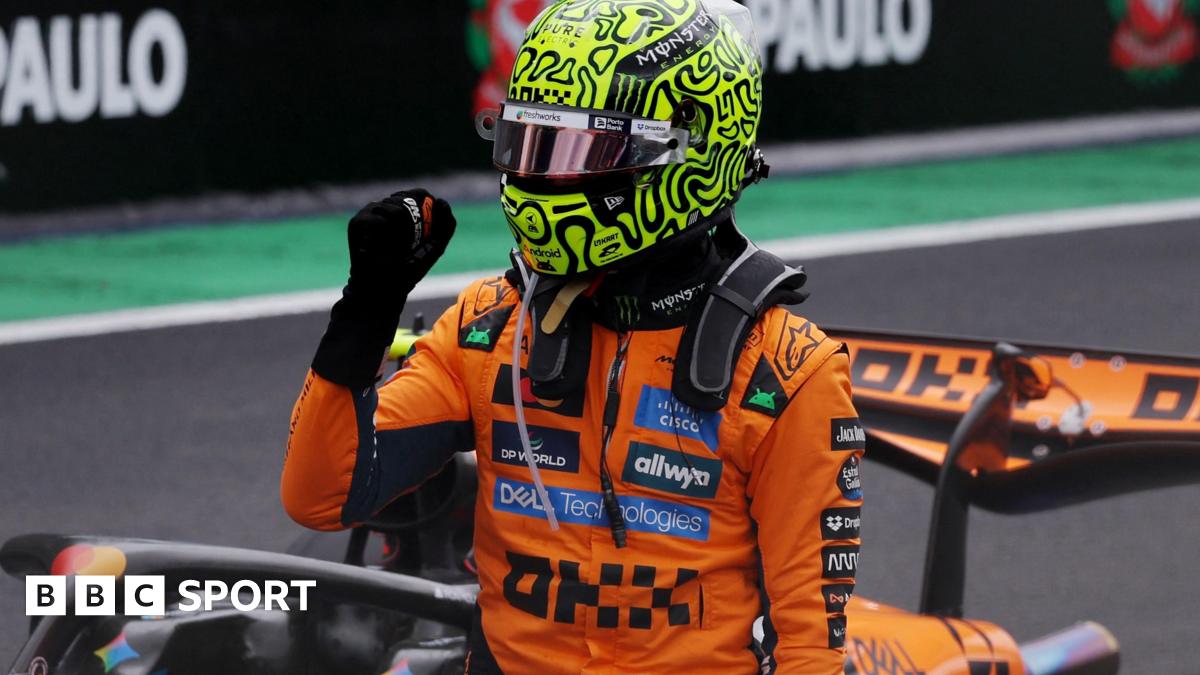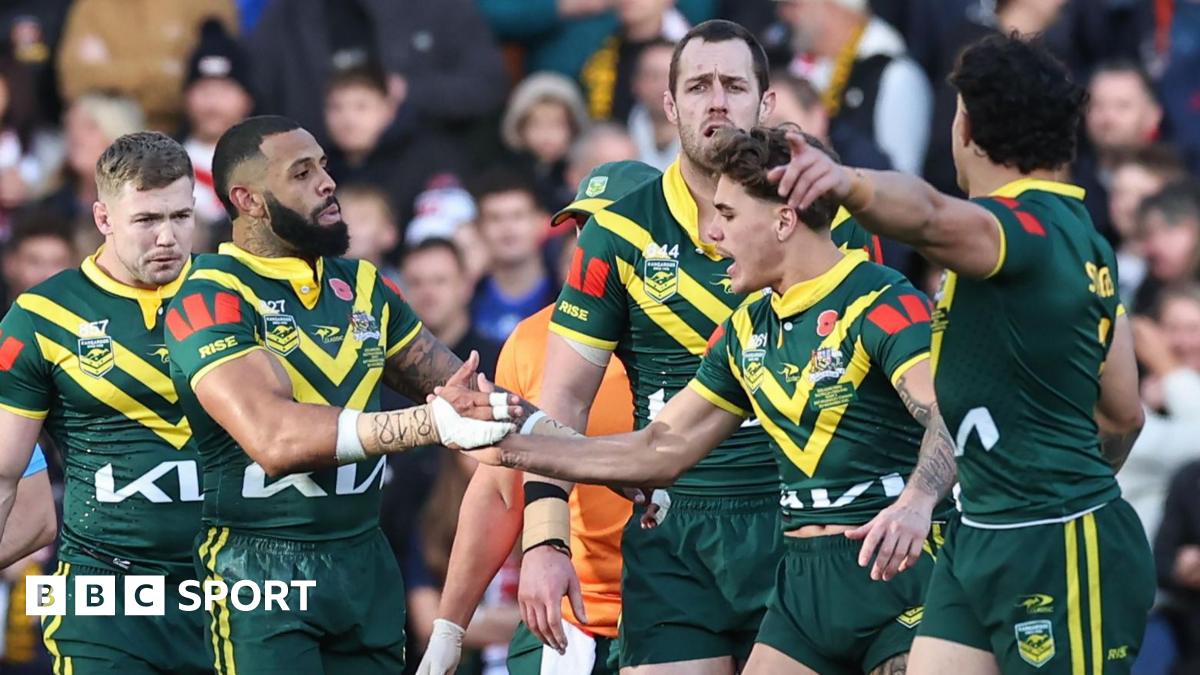'With power comes responsibility'
ByElizabeth Conway
Spanish football reporter
When you imagine a top footballer pulling up to their club's training ground, the mode of transport that springs to mind is a luxury car. You would not anticipate them arriving on a bicycle.
But Real Betis defender Hector Bellerin is not the archetypal player. He prefers to arrive at the team's base in Seville using more sustainable means than most - riding a bike or taking public transport.
"It would be easier to take a cab. I know I'm privileged, but it's more of a revindication. We need greener cities, with fewer cars," Bellerin says.
The 30-year-old is passionate about trying to live a more sustainable life, something he shares with his 3.7 million followers on social media.
And on Monday he was named global champion at the BBC Green Sport Awards.
Hector Bellerin is surprised with BBC Green Sports Award title
Wenger's influence
Sitting down with Bellerin, the first thing you notice is his accent. Although he is a native Spaniard, his English is so fluent it sounds like he has not spent a day away from north London, where he moved aged 16 to join Arsenal's academy.
It was during his 10 years with the Gunners - and particularly when he was playing under manager Arsene Wenger - that Bellerin first became interested in environmental issues. He gives Wenger plenty of credit.
"I learned a lot from him - not focused on sustainability itself because I feel like that word nowadays has very clear connotations, but more about a holistic way of living, and I think sustainability comes into that," Bellerin says.
"With sustainability comes empathy and compassion. These are all traits that you get when you decide to take care of the place that gives you life.
"Wenger was someone that was very conscious of all these traits and he tried to project them in his own way. I think he did a great job with that."
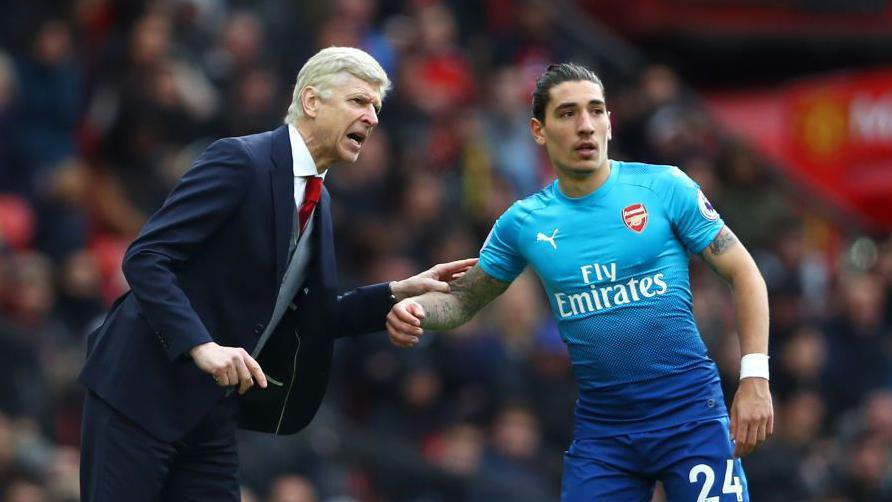 Image source, Getty Images
Image source, Getty Images
Bellerin played under Arsene Wenger for five years at Arsenal
Beyond the pitch
Bellerin's influence stretches far beyond the pitch. He has consistently used his large social media following and public appearances to advocate for climate action, encourage more ethical consumption and drive community change.
"I feel with power comes responsibility. Every time someone puts a microphone next to you, there's a chance to talk about issues, to generate conversation," he says.
Growing up surrounded by nature, Bellerin credits his upbringing for sparking a lifelong connection with the environment - one that continues to shape his daily decisions, from transportation, to becoming a vegan, to his fashion choices.
"I've been consuming second-hand clothes and shoes for a really long time. I remember once it took me six months to decide to buy a pair of shoes I saw in a shop next to where I parked," he says.
"I wear those shoes almost all the time. It's about giving what you consume a good life and, when you're done, giving it another life.
"We're constantly bombarded by advertising that creates a false sense of need."
Bellerin acknowledges that some essentials like clothing, food and travel are necessary and enrich our lives. But the key, he says, is to question whether we truly need something before buying it.
"It's a fundamental part of me. I'm always reflecting," he says. "If I can share that with others, I can help create a better, safer environment for everyone."
For Bellerin, the most powerful tool for change is the ballot box.
"It's not something we do every day, but voting is essential," he says. "It's the most effective way to support governments that are committed to environmental action and a greener future."
Bellerin is candid about often being the "outsider" in football - a sport not typically associated with environmental activism. However, he says his Betis team-mates have been supportive and open to conversations, even when they disagree.
"I'm someone who brings something different to the table. We have debates, sometimes I get angry," he laughs.
"But they respect me; they listen. I learn from them too. Even when people think very differently from me, it helps me see the world in new ways."
Why Betis was the right fit
Although Bellerin joined Betis because of family ties - his father and grandmother are lifelong fans - he quickly found the club's values on sustainability aligned with his own.
"I'd heard of the Forever Green Foundation, but I wasn't fully aware of the work they were doing," he says. "Once I arrived, it felt like everything just clicked."
This initiative, which was launched in 2018, is about changing the way the club operate to help them become more sustainable and eco-friendly. An example of this is installing stadium seats made from discarded fishing nets.
Bellerin was also involved in the launch of a new Betis shirt made from algae, wood pulp and recycled plastic.
"Betis isn't just a football club," Bellerin says. "It's a space where people can grow, get support, and feel part of something bigger. Being part of that is incredibly fulfilling."
Another club Bellerin is part of is Forest Green Rovers. In 2020 he became a shareholder because of their sustainability goals.
Football and sustainability do not always go in hand in hand.
A recent report from Fifpro, the international players' union, looked at how much players travelled in 2024-25.
It found former Brighton keeper Mathew Ryan travelled more than any other player in the world - more than 100,000 miles - with 217 hours spent travelling (the equivalent of nine days).
Bellerin does not shy away from addressing the contradiction of promoting sustainability in a sport increasingly defined by global travel and commercial expansion, referencing the upcoming 2026 World Cup which will be hosted across three countries - Canada, Mexico and the United States.
"It's hard. I don't make the decisions and I'm very aware of how the industry works. But I'm not going to stop doing what I love because of decisions made at the top," he says.
"We players often feel like we're treated like numbers or marketable goods. There's more games, more travel, more difficult conditions. And we're just told to hydrate.
"I'm just a football player, but I can raise my voice about the injustices and the things that I think could be done better."
In its report, Fifpro said players are caught in a "perfect storm of how not to treat a human".
Bellerin says meaningful change will only happen when players come together and take collective action.
"Unless footballers around the world unite - whether that means stopping or taking bold decisions - the wheel's just going to keep turning," he says.
Bellerin points to women's football as a powerful example of what unity can achieve.
"They've shown real strength," he says. "Every time there's been an issue, whether it's about safety, salaries or working conditions, they've stood together and they've come out on top. That's what happens when people unite.
"It's something men's football still lacks. But if we want to keep doing this and enjoy it, that kind of solidarity is going to be essential.
"If we as footballers had the courage to protest against certain things with the power that we have, I'm telling you the world would be a complete different place."
'I am proud of this award'
Bellerin was unaware that at the end of this interview he would be told he had won the BBC award.
Team-mate and close friend Aitor Ruibal surprised him with an envelope which contained the news.
"I feel very grateful. It is totally unexpected. I've been doing this stuff for a very long time, talking about sustainability not just in sport but in our everyday life," Bellerin says.
"I really appreciate it because it means that all the work and effort behind the scenes, to promote a message that I think is really important, has been seen and appreciated."
Elizabeth Conway meets Hector Bellerin in Seville

 3 months ago
51
3 months ago
51






